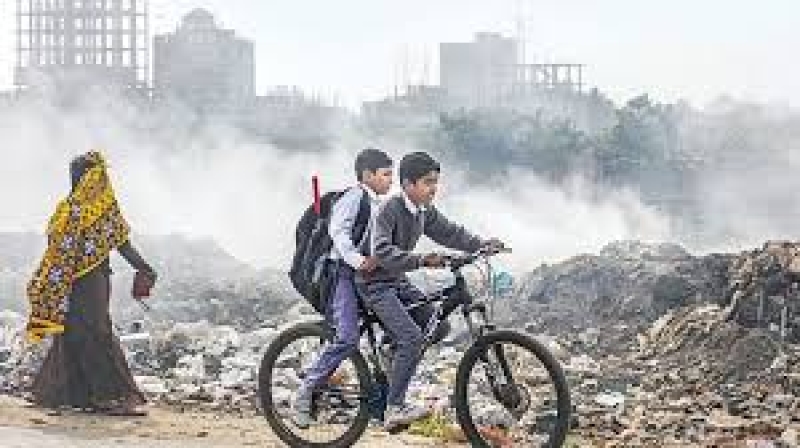- India Sees 9% Drop in Foreign Tourists as Bangladesh Visits Plunge |
- Dhaka Urges Restraint in Pakistan-Afghan War |
- Guterres Urges Action on Safe Migration Pact |
- OpenAI Raises $110B in Amazon-Led Funding |
- Puppet show enchants Children as Boi Mela comes alive on day 2 |
Dhaka’s air unhealthy Monday morning

Dhaka's air quality was categorised as unhealthy for sensitive groups this morning.
With an air quality index (AQI) score of 134 at 10:00 am, Dhaka ranked 7th on the list of cities worldwide with the worst air quality.
Saudi Arabia's Riyadh, India's Delhi and Pakistan's Kahore occupied the first, second and third spots on the list, with AQI scores of 342, 293 and 254, respectively.
When the AQI value for particle pollution is between 101 and 150, air quality is considered ‘unhealthy for sensitive groups’, between 150 and 200 is ‘unhealthy’, between 201 and 300 is said to be 'very unhealthy', while a reading of 301+ is considered 'hazardous', posing serious health risks to residents.
The AQI, an index for reporting daily air quality, informs people how clean or polluted the air of a certain city is and what associated health effects might be a concern for them.
The AQI in Bangladesh is based on five pollutants: particulate matter (PM10 and PM2.5), NO2, CO, SO2, and ozone.
Dhaka has long been grappling with air pollution issues. Its air quality usually turns unhealthy in winter and improves during the monsoon.
As per World Health Organization (WHO), air pollution kills an estimated seven million people worldwide every year, mainly due to increased mortality from stroke, heart disease, chronic obstructive pulmonary disease, lung cancer, and acute respiratory infections, reports UNB.

